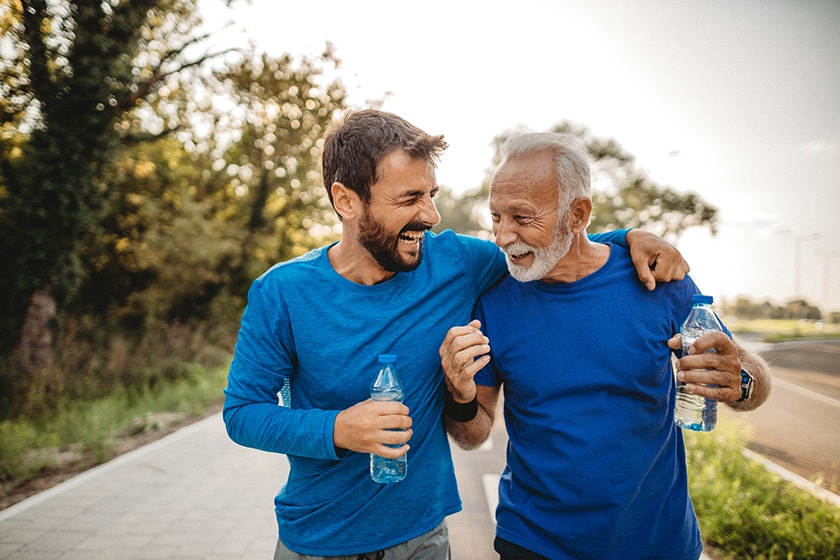It can be frustrating to watch someone you care about suffer with PTSD symptoms. You know how much happier they’d be if they could just let go and move on. How can you help them to see that?
The truth is your loved one already knows they’d be happier without their PTSD symptoms. Yet it’s not that easy. People with PTSD symptoms often aren’t in control. They may want to just relax, but their nervous system won’t let them. They’re trapped in a state of high alert.
But while you may not be able to talk them free from the grips of PTSD symptoms, your support can make a big difference. Here are 7 things you can do.
- Be present. Simply being there for your loved one is a way of helping. Just finding “normal” things to do together that you both enjoy can help build their resilience against their symptoms.
- Be patient. Your loved one may need to talk about their trauma—again and again. Avoid shutting them down when they want to open up. Try to listen without judgment or giving advice. Talking can be part of the healing process.
- Take care of yourself. It can be hard to be an anchor for someone else who’s struggling. Make time for things that help you manage your own stress, like exercise, getting enough sleep, or working on a hobby.
- Be dependable. People who are recovering from trauma often see the world around them as a dangerous place. This makes it hard to trust people. Showing your loved one that you can be trusted is one way you can help to rebuild their sense of security.
- Set a routine. Helping your loved one add structure to their days is another way to boost their sense of stability and trust. It can also simplify your life. Could you make dinner at the same time every night, and follow it up with a walk together?
- Learn more about PTSD. Knowing about symptoms, effects, and treatment options can give you a greater perspective on what your loved one is going through.
- Be supportive of treatment. Treatment can be life-changing for people with PTSD symptoms. Yet for too many people, traditional treatments like talk therapy or medication fall short. In one study of veterans, 6 out of 10 continued to suffer from debilitating symptoms, despite undergoing treatment.
That’s where Freespira comes in. Freespira is an FDA-cleared treatment for panic attacks and PTSD symptoms that works in just 28 days without pills or therapy. The treatment can be completed entirely at home in two 17-minute sessions per day. Want to learn more about Freespira?
Talk to an advisor to learn more.
05672 Rev A



